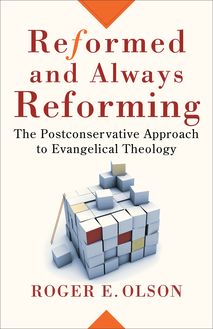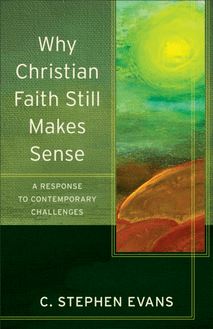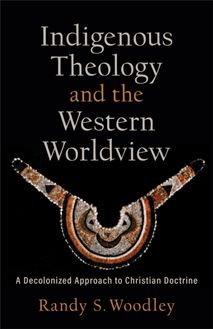How We Got the New Testament (Acadia Studies in Bible and Theology) , livre ebook
179
pages
English
Ebooks
2013
Vous pourrez modifier la taille du texte de cet ouvrage
Obtenez un accès à la bibliothèque pour le consulter en ligne En savoir plus
Découvre YouScribe en t'inscrivant gratuitement
Découvre YouScribe en t'inscrivant gratuitement
179
pages
English
Ebooks
2013
Vous pourrez modifier la taille du texte de cet ouvrage
Obtenez un accès à la bibliothèque pour le consulter en ligne En savoir plus
Publié par
Date de parution
05 novembre 2013
Nombre de lectures
1
EAN13
9781441242686
Langue
English
Poids de l'ouvrage
1 Mo
Publié par
Date de parution
05 novembre 2013
Nombre de lectures
1
EAN13
9781441242686
Langue
English
Poids de l'ouvrage
1 Mo
Acadia Studies in Bible and Theology
Craig A. Evans and Lee Martin McDonald, General Editors
T he last two decades have witnessed dramatic developments in biblical and theological study. Full-time academics can scarcely keep up with fresh discoveries, recently published primary texts, ongoing archaeological work, new exegetical proposals, experiments in methods and hermeneutics, and innovative theological syntheses. For students and nonspecialists, these developments are confusing and daunting. What has been needed is a series of succinct studies that assess these issues and present their findings in a way that students, pastors, laity, and nonspecialists will find accessible and rewarding. Acadia Studies in Bible and Theology, sponsored by Acadia Divinity College in Wolfville, Nova Scotia, and in conjunction with the college’s Hayward Lectureship, constitutes such a series.
The Hayward Lectureship has brought to Acadia many distinguished scholars of Bible and theology, such as Sir Robin Barbour, John Bright, Leander Keck, Helmut Koester, Richard Longenecker, Martin Marty, Jaroslav Pelikan, Ian Rennie, James Sanders, and Eduard Schweizer. The Acadia Studies in Bible and Theology series reflects this rich heritage.
These studies are designed to guide readers through the ever more complicated maze of critical, interpretative, and theological discussion taking place today. But these studies are not introductory in nature; nor are they mere surveys. Authored by leading authorities in the field, the Acadia Studies in Bible and Theology series offers critical assessments of the major issues that the church faces in the twenty-first century. Readers will gain the requisite orientation and fresh understanding of the important issues that will enable them to take part meaningfully in discussion and debate.
© 2013 by Stanley E. Porter
Published by Baker Academic
a division of Baker Publishing Group
P.O. Box 6287, Grand Rapids, MI 49516-6287
www . bakeracademic . com
Ebook edition created 2013
All rights reserved. No part of this publication may be reproduced, stored in a retrieval system, or transmitted in any form or by any means for example, electronic, photocopy, recording without the prior written permission of the publisher. The only exception is brief quotations in printed reviews.
Library of Congress Cataloging-in-Publication Data is on file at the Library of Congress, Washington, DC.
ISBN 978-1-4412-4268-6
Unless otherwise indicated, Scripture quotations are from the King James Version of the Bible.
Scripture quotations labeled TNIV are from the Holy Bible, Today’s New International Version®. TNIV®. Copyright © 2001, 2005 by Biblica, Inc. ™ Used by permission of Zondervan. All rights reserved worldwide. www.zondervan.com
“With his typical breadth of knowledge, Stanley Porter offers us another helpful volume to frame our understanding of the background of the New Testament. This succinct text on complicated topics is unique in bringing together an introductory discussion of three related but distinct NT topics textual criticism, early manuscript transmission (with some discussion of canon formation), and translation theory and practice. This is a solid resource for the educated layperson and a good introductory textbook for the college and seminary classroom.”
Jonathan T. Pennington , Southern Baptist Theological Seminary
“A welcome addition to the growing body of recent literature dealing with New Testament textual criticism and its corollaries, canon formation and Bible translation. Porter, however, does not simply deal with the traditional topics of text, transmission, and translation though he does this well; he also delves much deeper into the emergent and controversial methodological reassessments that have been prompted by a reinvigorated discipline. Porter’s work not only serves as a helpful contribution to the ongoing discussions related to text-critical methodology but also seeks to extend the conversations originally framed by the luminous studies of individuals like Elliott, Epp, Holmes, Hurtado, Nida, and Parker.”
Kent D. Clarke , Trinity Western University
“Porter provides a wide-ranging historical summary and assessment of topics that are crucial to New Testament studies and to the church. The treatment of modern translations in part 3 is especially helpful and goes well beyond the usual considerations of formal versus functional equivalence.”
Rodney Decker , Baptist Bible Seminary
“Stanley Porter is one of the most prolific scholars working on the manuscripts, language, linguistics, and translation of the New Testament writings. In this book readers will learn how we gather from the multitude of individual manuscripts the texts printed, read, and preached from today. Notable here is Porter’s defense of the traditional search for the original text in the face of the current trend to deny its feasibility or diminish its relevance. Porter also argues for the importance of closely considering matters of translation since most of us encounter the New Testament most frequently in translated form. He offers informed evaluations of modern English translations and then introduces some of his extensive work on current translation theory and method. The result is a unique presentation that will greatly benefit both novice and expert alike.”
Charles E. Hill , Reformed Theological Seminary, Orlando
To Lionel Pye, Burt Hamilton, Nina Thomas, and all of my other colleagues at McMaster Divinity College who kept the college running smoothly while I was temporarily medically incapacitated.
Thank you.
God is good.
Contents
Cover i
Series Page ii
Title Page iii
Copyright Page iv
Endorsements v
Dedication vi
Preface ix
Abbreviations xiii
Introduction 1
1. The Text of the New Testament 9
Introduction 9
Is There a Text of the Greek New Testament? Or, What Is the Goal of Textual Criticism? 12
The History of the Printed Greek Text of the New Testament 36
Bart Ehrman and Misquoting Jesus 65
Eclectic or Single Manuscript? 72
Conclusion 76
2. The Transmission of the New Testament 77
Introduction 77
The Manuscripts of the Greek New Testament 79
A Reconstructed History of the Transmission of the Greek New Testament before the Major Codexes 84
The Major Codexes 124
Minuscules and Lectionaries 138
A Proposal regarding Textual Transmission of the Greek New Testament 141
Conclusion 146
3. The Translation of the New Testament 147
Introduction 147
The History of Translation of the New Testament 148
Major Issues in Translation of the New Testament 173
Conclusion 209
Conclusion 211
Index of Ancient Sources 214
Index of Modern Authors 219
Notes 223
Back Cover 229
Preface
I was honored to have been invited to offer these lectures on October 20–22, 2008, at Acadia Divinity College in Wolfville, Nova Scotia, as the Hayward Lecturer for that year. I wish to thank those responsible for this invitation, especially my good friend Dr. Craig Evans, along with the rest of the faculty at Acadia Divinity College. I was honored not only to give these lectures but also to be invited to preach in the morning worship service in Manning Memorial Chapel on October 22 on the campus of Acadia University. Danny Zacharias was also a great help in managing the technical logistics. I enjoyed the opportunity to talk less formally with a number of students.
I have previously been a part of the Hayward Lectures at Acadia Divinity College, the first time in 2002 responding to the major set of lectures by Professor I. Howard Marshall, and the second time in 2006 as a contributor to a volume on the origins of the Bible. The first was published as “Hermeneutics, Biblical Interpretation, and Theology: Hunch, Holy Spirit, or Hard Work?” in Beyond the Bible: Moving from Scripture to Theology , by I. Howard Marshall, with essays by Kevin J. Vanhoozer and Stanley E. Porter, Acadia Studies in Bible and Theology (Grand Rapids: Baker Academic, 2004), 97–127. The second was published as “Paul and the Process of Canonization,” in Exploring the Origins of the Bible: Canon Formation in Historical, Literary, and Theological Perspective , edited by Craig A. Evans and Emanuel Tov, Acadia Studies in Bible and Theology (Grand Rapids: Baker Academic, 2008), 173–202. I have made some use of this second paper in another form in chapter 2 on the transmission of the New Testament in this volume.
Those two occasions were very profitable times, as I was fortunate to engage in interesting discussion of these topics and to enjoy tremendous hospitality in the company of both colleagues and students. I wish to thank several of the students of Acadia Divinity College with whom I spoke after delivering my paper in 2006 for prompting me to think further about the topic of formation of the Pauline canon. It is largely because of their prompting, as well as the encouragement of Craig Evans, that I chose this set of topics for my lectures in 2008. I was pleased to be able to return to Wolfville to offer these lectures on particular issues arising within the broader topic of how we got the New Testament. I have broken the topic down into three subfields to bring together several areas that are not always considered in concert in treatment of this broad topic. Matters of textual criticism have been brought once more to the fore on the basis of some recent work by those who have raised doubts about the nature and reliability of the text of the New Testament, including questioning the viability of an original or autograph text. The question of how the New Testament has been transmitted continues to be a subject of widespread and intense debate, as there are so many different theories of the dark or tunnel period before the assembling of our major codexes. The subject of translation may seem the most far-fetched in relation to the other two topics. However, from almost the advent of Christianity the New Testament has been translated in







